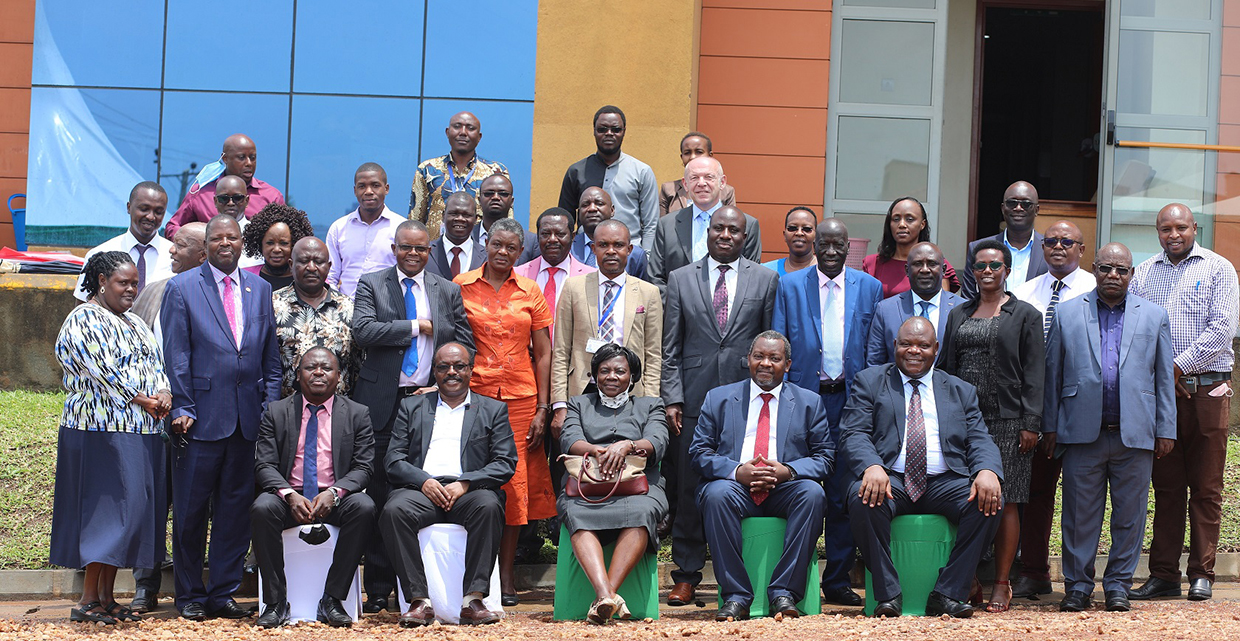MEACA Uganda Visits IUCEA

A delegation from the Ministry of East African Community Affairs (MEACA) Uganda paid a visit to the Inter-University Council for East Africa (IUCEA) on February 28th 2022, to check on the progress of implementation of Summit decisions on higher education.
The Summit is comprised of EAC Heads of State and Government and is the apex body that guides on the overall strategic decisions of the EAC. IUCEA is an institution of the EAC responsible for higher education and research, putting it front and center in the socio-economic transformation of the Community.
“The Republic of Uganda, IUCEA’s host country has been supportive to IUCEA in many ways. IUCEA survived the collapse of the Community and celebrated its 50 years’ anniversary in 2020 due to the support of Uganda,” said Prof. Gaspard Banyankibona, Executive Secretary, IUCEA.
He added, “As we struggle to overcome the impact of the coronavirus pandemic on IUCEA and higher education in the EAC and beyond, we count on your understanding and support to be able to deliver on our core mandate, which is the implementation of the EAC Common Higher Education Area.”
The Permanent Secretary, MEACA, Mrs. Edith Mwanje, said that as a Ministry they appreciate the work done by organs and institutions of EAC since they are the implementers of the decisions of the Council of Ministers.
“The purpose of our visit is to understand what’s going on. We want to understand how you are implementing Summit decisions on the Common Higher Education Area and how you are you moving on the other issues, such that as we go to meetings to support you we know what’s taking place, your achievements and challenges.”
IUCEA is majorly funded by EAC Partner States on equal basis. The funding to IUCEA is channeled through Ministries of East African Community Affairs.
Mrs. Mwanje called on IUCEA to start the construction of its second phase of its headquarters building at Kyambogo hill in Kampala. “It will be a source of income and it will be our pride to sit in our own building and as MEACA we will promote the use of that building.”
In addition to developing a module on leadership, MEACA advised IUCEA to consider a module on regional integration. They also advised IUCEA to organize workshops for IUCEA scholarship beneficiaries to be equipped with knowledge on regional integration.
MEACA advised IUCEA to galvanize its visibility and identify opportunities through which to maximize its publicity across East Africa. It was noted that stronger collaboration between IUCEA and MEACAs would strengthen relations and IUCEA’s visibility.
“The more you interact with people from MEACAs and even other Ministries like Ministry of Education, when you get to know each other, things move a little bit better and I appreciate today’s visit,” said Prof. Mike Kuria, Deputy Executive Secretary of IUCEA.
The MEACA delegation later visited Mbarara University of Science and Technology to see the Pharm-biotechnology and Traditional Medicine Centre (PHARMBIOTRAC), one of the 24 Africa Higher Education Centers of Excellence for which IUCEA is the Regional Facilitation Unit.

